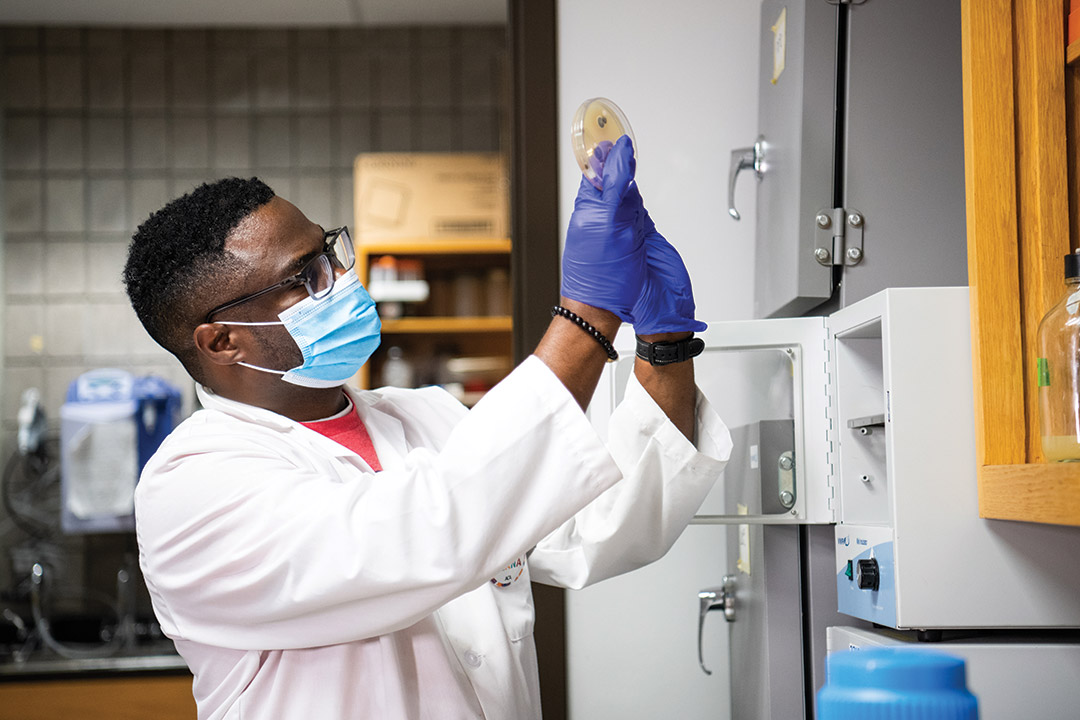RIT Sponsored Research garners $82 million
Gabrielle Plucknette-DeVito
André Hudson, head of the Thomas H. Gosnell School of Life Sciences, conducts experiments at the beginning of the pandemic to see if the air ionization systems RIT purchased would be effective at killing microorganisms.
RIT had its best year ever for sponsored research funding.
For fiscal year 2020, which ended June 30, RIT received 382 new awards totaling $82 million. The record funding follows almost $58 million in research expenditures in fiscal year 2019, also a record.
During this most recent fiscal year, RIT had 339 principal investigators associated with 669 active research awards.
“In these challenging times, RIT is quite fortunate to have obtained a record amount of support for its research programs,” said Ryne Raffaelle, RIT’s vice president for research and associate provost. “One thing that we have definitely learned through this pandemic, and the other challenges facing our society, is the importance of academic research. It is gratifying to note that we are doing our part.”
Among the funding sources, RIT received:
- $44 million from federal agencies, including $15 million from the National Science Foundation, $12.7 million from the Department of Defense, $6.6 million from the Department of Health and Human Services (most of that from the National Institutes of
Health) and $4 million from the National Aeronautics and Space Administration; - $16 million from New York state.
The university also submitted 723 research proposals, totaling $200 million this past fiscal year. Some of the research highlights include:
- Donna Burnette, director of RIT’s K-12 program, received a $3.5 million Army Education Outreach Program (AEOP) award to support high school apprentices displaced by the COVID-19 pandemic.
- Bo Yuan, professor and chair of the Department of Computing Security, received $2.4 million from NSF for the Scholarships for Service Program, which takes exceptional BS students majoring in computer science, software engineering, or computing security and places them in accelerated BS/MS programs in computing security.
- Matt Dye, assistant professor in the Department of Liberal Studies at RIT/NTID and Department of Psychology, received a $1 million award from NIH to examine the effects of auditory development, cognitive function, and language outcomes in a large group of young deaf adults.
- Jeanne Christman, associate professor in the College of Engineering Technology, received a $1 million NSF award to use self-determination theory to inform practice on a proposed project, Critical Mass of Engineering Technology Scholars. Its purpose is to recruit and retain a more diverse pool of students to engineering technology by addressing factors that contribute to the underrepresentation of women, students of color, and those who are deaf or hard of hearing.









